Here’s What’s Streaming on The Criterion Channel in November 2025
The Criterion Channel has announced the titles hitting their platform in November 2025, including collections featuring the films of directors Howard Hawks and Werner Herzog, a spotlight on Black Out Noir, and Criterion Collection Editions of Nancy Savoca’s DOGFIGHT and Kenneth Lonergan’s YOU CAN COUNT ON ME.
Here’s the full breakdown:
*Indicates programming available only in the U.S.
TOP STORIES
Family Reunions
When relatives get together, anything can happen. This collection brings together all-too-relatable family portraits that capture the dysfunction, tenderness, and hilarity of holidays, weddings, feasts, and homecomings both joyous and maddening. From the somber poignancy of John Huston’s masterful James Joyce adaptation The Dead to the cutting truth of Jonathan Demme’s fearlessly raw Rachel Getting Married to the chaotic warmth of Arnaud Desplechin’s holiday enchantment A Christmas Tale, these ensemble showcases contain all the laughter, tears, and human drama that only those closest to us can provoke.
FEATURING: My Brother’s Wedding (1983), Hannah and Her Sisters (1986), The Dead (1987), The Celebration (1998), You Can Count on Me (2000), Pieces of April (2003), Garden State (2004), Margot at the Wedding (2007), The Savages (2007), A Christmas Tale (2008)*, Rachel Getting Married (2008), Nebraska (2013)
Directed by Werner Herzog
An artistic renegade every bit as uncompromising, fearless, and eccentric as the outsiders, oddballs, and obsessives he makes films about, Werner Herzog is a larger-than-life legend who has risked death, hypnotized an entire cast, moved a steamship over a mountain, and eaten his own shoe, all in the name of cinema. Emerging from the New German Cinema movement, he has devoted himself to chronicling the quests of dreamers, holy fools, and madmen in feverish, almost mystical narrative works like Aguirre, the Wrath of God (the first of his brilliant and often turbulent collaborations with frequent star Klaus Kinski), Stroszek, The Enigma of Kaspar Hauser, and Fitzcarraldo, a film as famous for its hallucinatory images as for its notoriously dangerous production. Also a prolific documentarian, Herzog is fascinated by extreme landscapes (Fata Morgana, Lessons of Darkness) and incredible feats of human endurance (Land of Silence and Darkness, Little Dieter Needs to Fly), seeking “ecstatic truth” in true stories just as bizarre as his fictions.
FEATURING: Signs of Life (1968), Even Dwarfs Started Small (1970), Fata Morgana (1971), Land of Silence And Darkness (1971), Aguirre, the Wrath of God (1972), The Enigma of Kaspar Hauser (1974), The Great Ecstasy of Woodcarver Steiner (1974), Heart of Glass (1976), How Much Wood Would a Woodchuck Chuck? (1976), Stroszek (1977), Nosferatu the Vampyre (1979), Woyzeck (1979), God’s Angry Man (1981), Huie’s Sermon (1981), Fitzcarraldo (1982), Ballad of the Little Soldier (1984), Where the Green Ants Dream (1984), The Dark Glow of the Mountains (1985), Cobra Verde (1987), Herdsmen of the Sun (1989), Echoes from a Somber Empire (1990), Lessons of Darkness (1992), Little Dieter Needs to Fly (1997), My Best Fiend (1999), Wheel of Time (2003), Grizzly Man (2005), The Wild Blue Yonder (2005), Bad Lieutenant: Port of Call New Orleans (2009)*, My Son, My Son, What Have Ye Done (2009)
COMING JANUARY 1: Queen of the Desert (2015)
Blackout Noir
Among the most agonizingly intense films in the history of film noir are those that adopt the point of view of characters tormented by amnesia, memory holes, and drunken blackouts, leaving them to grasp in the dark in search of an often terrifying truth. Waking up unexpectedly in a stranger’s bed is one thing . . . putting on your coat to leave and discovering a bloodstain on it is another. Reveling in teasing ambiguity, these films—including both defining genre classics like In a Lonely Place and Crossfire and hidden gems like Black Angel and Deadline at Dawn—combine tantalizing whodunit mysteries with creeping doubt, paranoia, and a guilt that shreds the soul.
Programmed by Farran Smith Nehme and Glenn Kenny
FEATURING: Remember Last Night? (1935), Black Angel (1946), Deadline at Dawn (1946), Crossfire (1947), Framed (1947), Guilty Bystander (1950), In a Lonely Place (1950), The Blue Gardenia (1953), Blackout (1954)
Soundtracks by Trent Reznor
Few musicians have reshaped the sonic texture of contemporary cinema as profoundly as Trent Reznor, whose atmospheric, synth-driven soundtracks—often composed in collaboration with Atticus Ross—bristle with unease and eerie beauty. With his early contributions to Oliver Stone’s Natural Born Killers and David Lynch’s Lost Highway, the Nine Inch Nails mastermind channeled the dissonance of industrial rock into intense aural collages of dread and desire, while his celebrated score for The Social Network lent an undercurrent of ambient ominousness to David Fincher’s chronicle of corporate betrayal. In Luca Guadagnino’s Bones and All, Reznor’s music conveys tenderness and terror in the same breath, continuing a career-long exploration of how sound can embody even the most ambiguous emotional states.
FEATURING: Natural Born Killers (1994), Lost Highway (1997), The Social Network (2010), Bones and All (2022)*
Directed by Howard Hawks
Featuring a new introduction by critic Imogen Sara Smith
Both a consummate popular entertainer and an auteur so distinctive he inspired his own adjective, Howard Hawks built his movies around an exuberant, loose-limbed spirit of collaboration and improvisation, driven by the sparky banter and freewheeling interplay of charismatic stars at their best. In a career that spanned more than forty years, Hawks produced classics in nearly every genre—comedy (His Girl Friday), westerns (Red River), noir (The Big Sleep), gangster films (Scarface), action-adventure (To Have and Have Not), musicals (Gentlemen Prefer Blondes)—which he branded with his robust humor, self-assured style, and abiding interest in friendship and group camaraderie among characters engaged in often daring and dangerous pursuits. Distilling the screen personas of leading men like Cary Grant, Humphrey Bogart, and John Wayne to their essence while letting female stars such as Lauren Bacall, Barbara Stanwyck, and Rosalind Russell shine in roles of strength and swaggering bravado, Hawks gifted audiences with films that luxuriate in the pleasure of simply being with his unforgettable, irrepressible characters.
FEATURING: The Criminal Code (1931), Scarface (1932), Twentieth Century (1934), Barbary Coast (1935), Bringing Up Baby (1938)*, Only Angels Have Wings (1939), His Girl Friday (1940), Ball of Fire (1941), To Have and Have Not (1944), The Big Sleep (1946), Red River (1948), The Big Sky (1952), Gentlemen Prefer Blondes (1953), Rio Bravo (1959)
Josh Brolin’s Adventures in Moviegoing
In a career studded with acclaimed collaborations with auteurs like the Coen brothers, Denis Villeneuve, and Gus Van Sant, Josh Brolin has brought a rugged grit and grounded authenticity to his committed portrayals of complex, conflicted antiheroes. In this edition of Adventures in Moviegoing, Brolin sits down with Criterion president Peter Becker to discuss his life’s journey through cinema, from the formative impact of The Warriors and Apocalypse Now to why Dog Day Afternoon is the movie he never gets tired of to his love for “imperfect” films. The films he has chosen to present include John Cassavetes’s A Woman Under the Influence, Christopher Nolan’s Following, and Michael Haneke’s The Piano Teacher, works that center troubling, complicated characters whose stories reflect the discomfiting ambiguities of the human condition.
FEATURING: It Happened One Night (1934), A Woman Under the Influence (1974), Dog Day Afternoon (1975), Paris, Texas (1984), Following (1998), The Piano Teacher (2001)
Native Nonfiction
Since the birth of cinema, Indigenous people have been staple subjects of documentary—until a new generation of Native American filmmakers emerged in the 1980s who insisted on becoming its authors too. Forged in the social upheavals of the midtwentieth century and abetted by the emergence of accessible video technologies, these artists began to make films about and for their own communities, initiating a new kind of nonfiction that would be taken up by subsequent generations as one of the cornerstones of Native American cinema. From foundational works by filmmakers like Victor Masayesva Jr. (Itam Hakim, Hopiit) and Arlene Bowman (Navajo Talking Picture) who used the camera to preserve endangered cultural traditions and histories to younger artists like Sky Hopinka (maɬni – towards the ocean, towards the shore) and Fox Maxy (F1ghting Looks Different 2 Me Now) who combine documentary and experimental practices to create boldly personal explorations of Indigenous identity, these films find Native directors employing innovative cinematic language to speak directly to the concerns of their communities.
Programmed by Adam Piron
FEATURES: Itam Hakim, Hopiit (1984)*, Miss Navajo (2007), maɬni—towards the ocean, towards the shore (2020)
SHORTS: Navajo Talking Picture (1985), White Shamans and Plastic Medicine Men (1996), Hooghan (2018), Faces, Displays, and Other Imaginary Things (2020), F1ghting Looks Different 2 Me Now (2022), Long Line of Ladies (2022), Tiger (2025)
Starring Vicky Krieps
In the last decade, Vicky Krieps has quietly emerged as one of contemporary cinema’s most compelling actors, a luminous presence capable of navigating the most delicate emotional terrain with precision and depth. With her breakthrough role in Paul Thomas Anderson’s Phantom Thread, Krieps more than held her own opposite Daniel Day-Lewis, bringing an arresting mix of meticulous composure and understated longing to one of the most fascinating screen characters in recent memory. Whether projecting soulful complexity in Emily Atef’s More Than Ever or intense, simmering vulnerability in Mathieu Amalric’s Hold Me Tight, Krieps demonstrates an uncanny ability to reshape the very fabric of the stories she inhabits.
FEATURING: Bergman Island (2021), Hold Me Tight (2021), More Than Ever (2022)
COMING JANUARY 1: Phantom Thread (2017)
Pioneers of African American Cinema
Among the most fascinating chapters of cinematic history is that of the so-called “race films” that flourished in the U.S. between the 1920s and the ’40s. Unlike the “black cast” films produced within the Hollywood studio system, these films not only starred African Americans but were funded, written, produced, edited, distributed, and often exhibited by people of color. Entrepreneurial filmmakers built an industry apart from the Hollywood establishment, cultivating visual and narrative styles that were uniquely their own. Among the trailblazing artists featured here are Oscar Micheaux, the first major African American feature filmmaker, whose body of work includes Body and Soul, starring Paul Robeson in his film debut, and Within Our Gates; Spencer Williams, whose masterpiece The Blood of Jesus is among the most celebrated race films of the era; Zora Neale Hurston, the renowned writer who was also a pioneering ethnographic filmmaker; and James and Eloyce Gist, DIY evangelist filmmakers whose fascinating morality tales were exhibited in black churches. This landmark collection, curated by scholars Charles Musser and Jacqueline Najuma Stewart for Kino Lorber, collects an astonishing range of features, shorts, and fragments. Taken together, these vital, long-neglected works represent a rich alternative history of American cinema forged by innovative artists who defied systemic oppression to tell their own stories on-screen.
FEATURING: Two Knights of Vaudeville (1915), Mercy, the Mummy Mumbled (1918), A Reckless Rover (1918), Within Our Gates (1920), The Symbol of the Unconquered: A Story of the KKK (1920), By Right of Birth (1921), Regeneration (1923), Body and Soul (1925), The Flying Ace (1926), Ten Nights in a Bar Room (1926), Rev. S. S. Jones Home Movies (1924–1928), Eleven P.M. (1928), Zora Neale Hurston Fieldwork Footage (1928), The Scar of Shame (1929), Hell-Bound Train (1930), The Darktown Revue (1931), The Exile (1931), Hot Biskits (1931), The Girl from Chicago (1932), Ten Minutes to Live (1932), Veiled Aristocrats (1932), Verdict: Not Guilty (1933), Heaven-Bound Travelers (1935), Birthright (1938), The Bronze Buckaroo (1939), Commandment Keeper Church, Beaufort South Carolina, May 1940 (1940), The Blood of Jesus (1941), Dirty Gertie from Harlem U.S.A. (1946)
EXCLUSIVE PREMIERES
Goodbye Horses: The Many Lives of Q Lazzarus
In the early 1990s, Diane Luckey—known by her stage name Q Lazzarus—seemed poised for stardom when her darkly ravishing synth-pop anthem “Goodbye Horses” was featured to unforgettable effect in the pop-culture sensation The Silence of the Lambs. Instead, as a Black woman rock singer who defied genre expectations, Q faced a series of setbacks that led to her virtual disappearance from the public eye. Narrated through Q’s own words, lyrics, and music, this poignant documentary at last reveals the untold story of an exceptionally talented but unjustly overlooked musician, paving the way for a new appreciation of her artistry.
CRITERION COLLECTION EDITIONS
Dogfight (Nancy Savoca, 1991)
Criterion Collection Edition #1216
An aspiring folk singer and a Vietnam-bound marine meet via a cruelly misogynistic party where men compete to bring the most unattractive dates they can find.
SUPPLEMENTAL FEATURES: Audio commentary by director Nancy Savoca and producer Richard Guay, an interview with Savoca and actor Lili Taylor conducted by filmmaker Mary Harron, and more.
Cairo Station (Youssef Chahine, 1958)
Criterion Collection Edition #1273
Tragedy of operatic proportions unfolds on the streets of 1950s Cairo in Youssef Chahine’s searing blend of neorealism and provocative noir-melodrama.
SUPPLEMENTAL FEATURES: Chahine’s 1991 documentary Cairo as Seen by Chahine, an interview with film scholar Joseph Fahim, a 2009 documentary on Chahine, and more.
Compensation (Zeinabu irene Davis, 1999)
Criterion Collection Edition #1274
Zeinabu irene Davis’s groundbreaking story of inclusion and visibility is a poignant portrait of Deaf African Americans and the complexities of love at both ends of the twentieth century.
SUPPLEMENTAL FEATURES: Audio commentary by Davis, screenwriter Marc Arthur Chéry, and director of photography Pierre H. L. Désir Jr.; Q&As with members of the cast and crew; short films by Davis; and more.
You Can Count on Me (Kenneth Lonergan, 2000)
Criterion Collection Edition #1271
Celebrated playwright Kenneth Lonergan first brought his rich, humanist vision to the screen with this soulful look at the complexities of sibling relationships starring Mark Ruffalo and Laura Linney.
SUPPLEMENTAL FEATURES: Audio commentary by Lonergan and interviews with Lonergan and actors Matthew Broderick, Laura Linney, and Mark Ruffalo.
Scarface (Howard Hawks, 1932)
Criterion Collection Edition #1239
Paul Muni gives an iconic portrayal of criminal sociopathy in the scorching gangster-movie bombshell that helped set the standard for the genre for decades to come.
SUPPLEMENTAL FEATURES: A conversation with author Megan Abbott and actor Bill Hader, an interview with film scholar Lea Jacobs on director Howard Hawks’s innovative use of sound and editing, and more.
Born in Flames (Lizzie Borden, 1983)
Criterion Collection Edition #1277
A blistering rallying cry issued loud, clear, and unapologetically queer, Lizzie Borden’s postpunk provocation is a shock wave of feminist futurism that’s both an essential document of its time and radically ahead of it.
SUPPLEMENTAL FEATURES: An introduction by Borden; audio commentary by Borden and cast and crew members; and Regrouping (1976), Borden’s directorial debut, an experimental documentary about a New York City women’s group.
Read My Lips (Jacques Audiard, 2001)
Criterion Collection Edition #1279
In Jacques Audiard’s gripping thriller, an ex-con (Vincent Cassell) enlists a hard-of-hearing young woman (Emmanuelle Devos) in a risky scheme.
SUPPLEMENTAL FEATURES: An afterword by Audiard, audio commentary by Cassell and Devos, a program about the making of the film, and more.
The Beat That My Heart Skipped (Jacques Audiard, 2005)
Criterion Collection Edition #1280
Jacques Audiard blends breathtaking tension with human drama in this portrait of a real-estate broker torn between the dirty dealings of his slumlord father and his love for classical piano.
SUPPLEMENTAL FEATURES: Interviews with Audiard, coscreenwriter Tonino Benacquista, and composer Alexandre Desplat; deleted scenes featuring commentary by Audiard; rehearsal footage; and more.
REDISCOVERIES AND RESTORATIONS
Pink Narcissus
Working over the course of eight years in his downtown Manhattan loft, artist James Bidgood crafted this luxuriant queer fantasia, a crimson-saturated idyll of camp excess and erotic spectacle. Whiling away the hours between visits from his john, a handsome, brooding male prostitute (Bobby Kendall) loses himself in daydreams of incredible beauty, fantastic colors, and elaborate costumes as he imagines himself as everything from a triumphant matador vanquishing a bull (who is really a leather-clad biker) and an innocent wood nymph gamboling in the forest to a diaphanously dressed harem boy in the tent of a sheik.
The Sealed Soil
The earliest complete surviving feature film directed by an Iranian woman, Marva Nabili’s The Sealed Soil chronicles the resistance of a young woman (Flora Shabavis) to her forced marriage, a defiance quickly misinterpreted by her family as demonic possession. Breathtaking in its directorial sophistication and restraint and unblinking in its critique of institutionalized misogyny, this too-long-underseen masterstroke of world cinema stands alongside Chantal Akerman’s Jeanne Dielman both in its formal rigor and its quietly radical vision of female rebellion.
The Black and the Green
In a vital career forged in the revolutionary spirit of the 1960s, activist documentarian St. Clair Bourne chronicled overlooked Black American cultural histories with an incisive, illuminating eye. In The Black and the Green, Bourne follows five Black American civil rights activists as they travel to Belfast in the time of the Troubles on a journey of solidarity with the Northern Irish Catholics who are engaged in their own campaign for liberation. What emerges is a thoughtful, complex exchange of ideas on political organizing and modes of resistance that considers the inextricable link between freedom struggles across the world.
DIRECTOR SPOTLIGHTS
Adoor Gopalakrishnan’s Chronicles of Kerala
A living legend of Indian cinema, Adoor Gopalakrishnan is a major auteur whose psychologically penetrating films often take the form of parables or enigmas exploring the relationship between the individual and society—in particular the conditions of life in his home state of Kerala. Taking inspiration from the parallel cinema pioneered in Bengal by directors like Satyajit Ray and Ritwik Ghatak, Gopalakrishnan brought a new seriousness to Malayalam-language filmmaking, helping make Kerala one of the most exciting centers of art cinema on the subcontinent. Working in a unique, minimalist yet poetic style and highly attuned to the impact of sound, silence, and color, he has made only twelve narrative features in a more than fifty-year career, yet each—including acknowledged masterpieces like Rat Trap and Monologue—is the work of a consummate artist deeply committed to his own vision.
FEATURING: Rat Trap (1982), Monologue (1987), Shadow Kill (2002)
Directed by Jafar Panahi
As his Palme d’Or–winning latest It Was Just an Accident comes to theaters this fall, revisit the vital, self-reflexive, slyly perceptive films of the brilliant Iranian auteur Jafar Panahi, whose every work is an act of resistance. In his first two films, the neorealist revelations The White Balloon and The Mirror, Panahi used the deceptively simple guise of the children’s film to skirt official censorship, offering vivid portraits of Tehran street life through the eyes of young girls on everyday adventures through the city. Officially banned from filmmaking since 2010 on the grounds of political dissent, Panahi has nevertheless found innovative ways to continue working: This Is Not a Film was shot in his own apartment and smuggled out of Iran on a flash drive embedded in a cake, while Taxi was filmed entirely inside a cab driven by Panahi himself. By turns witty and cuttingly incisive commentaries on contemporary Iranian society, these statements of artistic defiance speak to the courage and persistence of an artist who has refused to be silenced.
FEATURING: The White Balloon (1995), The Mirror (1997), This Is Not a Film (2011)*, Taxi (2015), 3 Faces (2018)*, No Bears (2022)
Directed by Nancy Savoca
Featuring the documentary The Many Miracles of Household Saints
Graced with warmth, sensitivity, and indelible, richly realized characters, the films of Nancy Savoca eloquently evoke the inner worlds of women who challenge patriarchal norms in their quests to define themselves. Both built around luminous performances from Lili Taylor as young women on complex journeys of romantic and spiritual awakening, the period pieces Dogfight and Household Saints are understated gems of 1990s independent filmmaking that balance vividly drawn character portraits with broader insights into the generation-defining upheavals of midcentury America.
FEATURES: Dogfight (1991), Household Saints (1993), The Many Miracles of Household Saints (2024)
SHORTS: Bad Timing (1982), Renata (1982)
Rob Nilsson and John Hanson’s Prairie Histories
Fiercely independent voices in American cinema, Rob Nilsson and John Hanson make films that capture the grit and resistance of ordinary Americans on the front lines of class struggle. Through their groundbreaking dramatic feature Northern Lights and the revelatory documentary shorts known as the Prairie Trilogy, Nilsson and Hanson excavate a radical past, chronicling the lives and work of early North Dakota socialists and finding hope, solidarity, and stirring contemporary resonance in stories of collective action.
FEATURES: Northern Lights (1978)
SHORTS: Prairie Fire (1977), Rebel Earth (1980), Survivor (1980)
TWENTY-FIRST-CENTURY CINEMA
Pop Aye
A man and an elephant embark on a journey across Thailand like no other in this wonderfully eccentric, curiously moving story about the universal search for meaning.
SHORT FILMS
We Were the Scenery
In 1975, soon after the end of the Vietnam War, Hoa Thị Lê Chế and Huệ Nguyên Chế fled to the Philippines in a makeshift boat. There, they were held in a refugee camp and, along with nearly one hundred other refugees, were recruited as background extras in the filming of Apocalypse Now. Written by their daughter, poet Cathy Linh Che, this intimate, richly textured memory piece traces their journey through Vietnam, the Philippines, and the U.S., moving evocatively between past and present, truth and fiction, life and cinema.
MUSIC FILMS
SABLE,
This previously unreleased visual accompaniment to indie-folk outfit Bon Iver’s acclaimed 2024 EP weaves a soul-stirring journey of introspection and emotional evolution.
One Hand Don’t Clap
Trace the vibrant story of the West Indian musical traditions of calypso and soca through the sounds of some of the genre’s most legendary artists.
ENCORES
Back by Popular Demand
Don’t miss these viewer favorites, returning to the Channel in November!
FEATURING: Black Christmas (1974), The King of Comedy (1982), Once Upon a Time in America (1984)


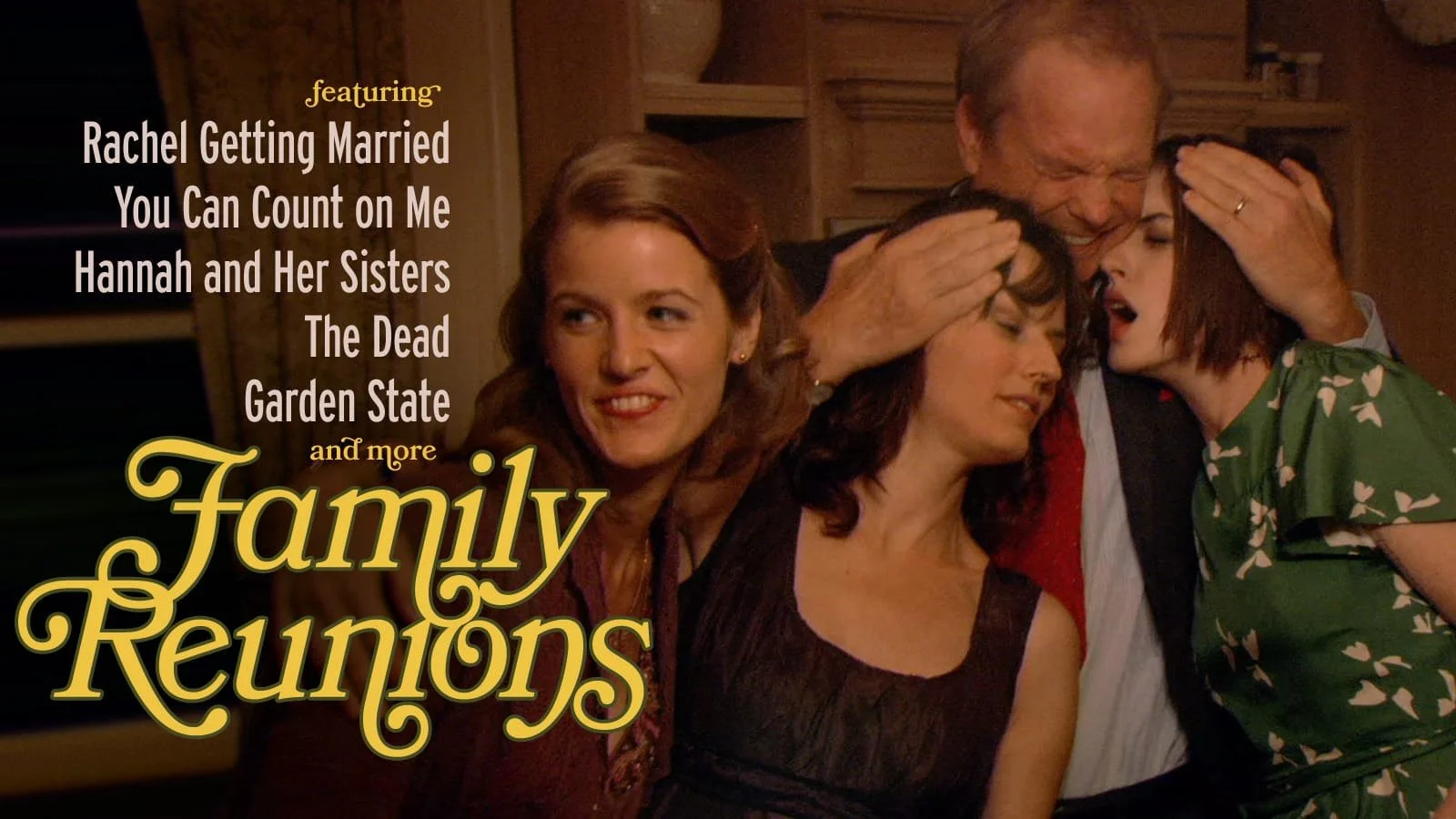
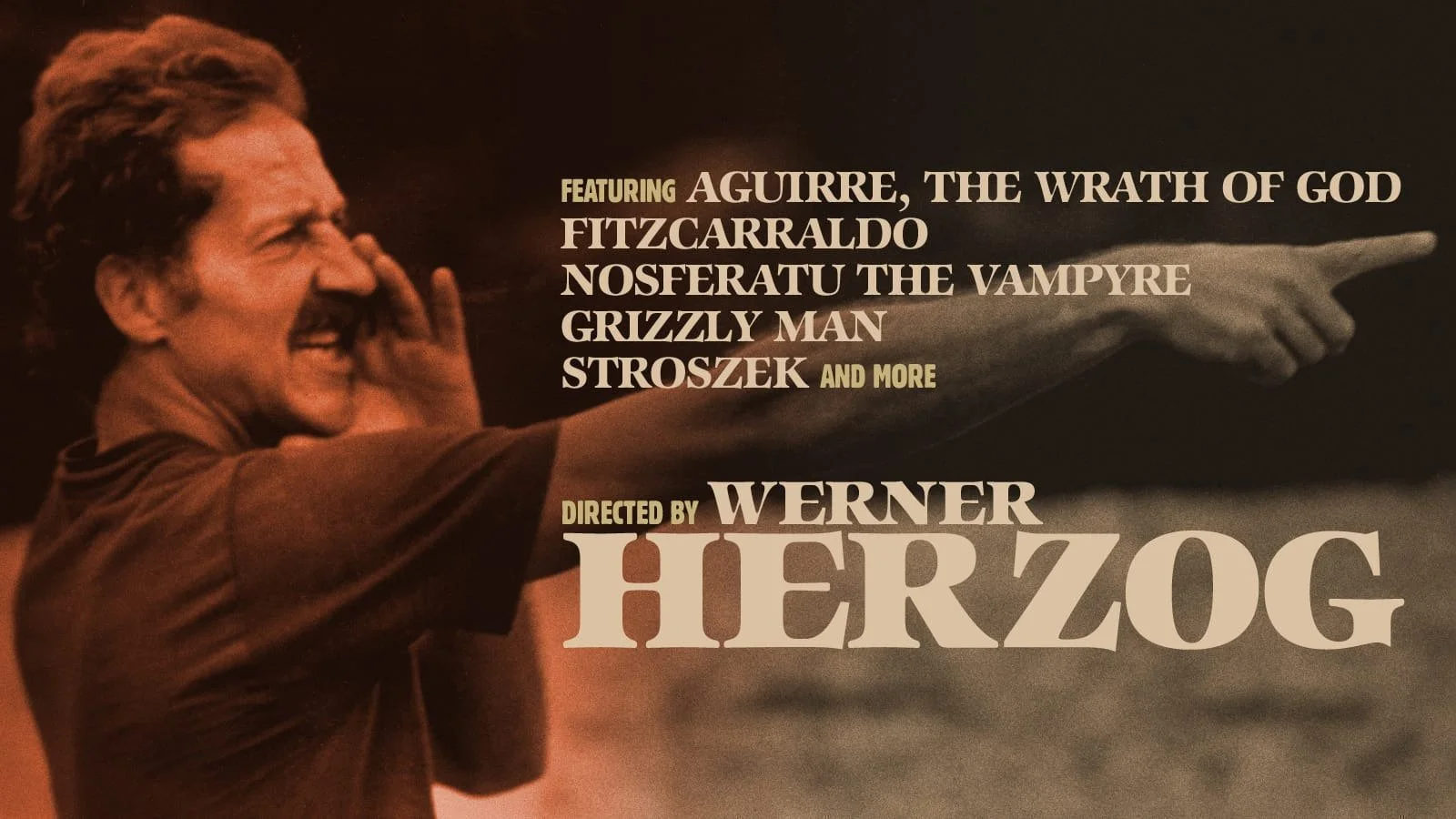
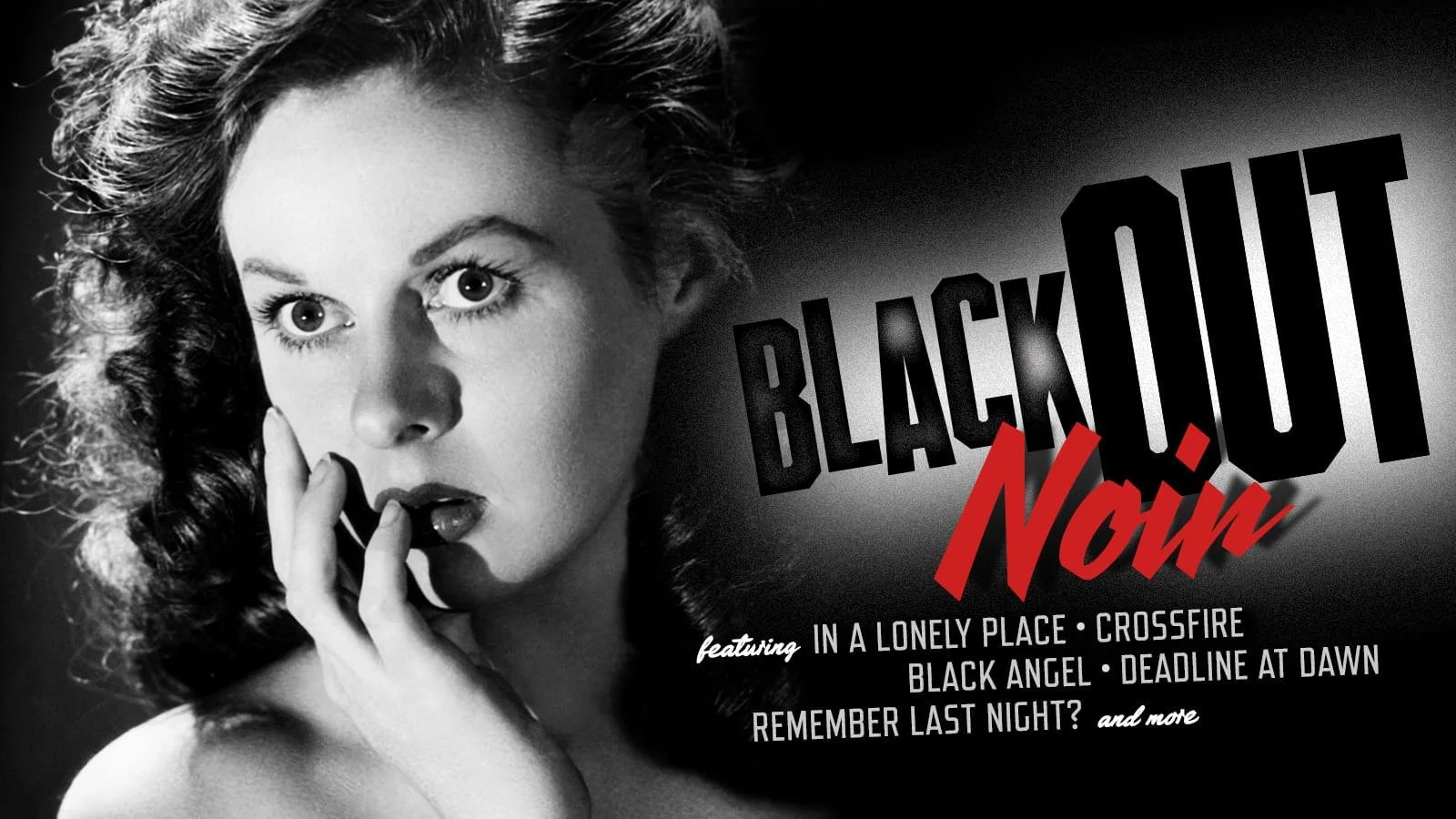
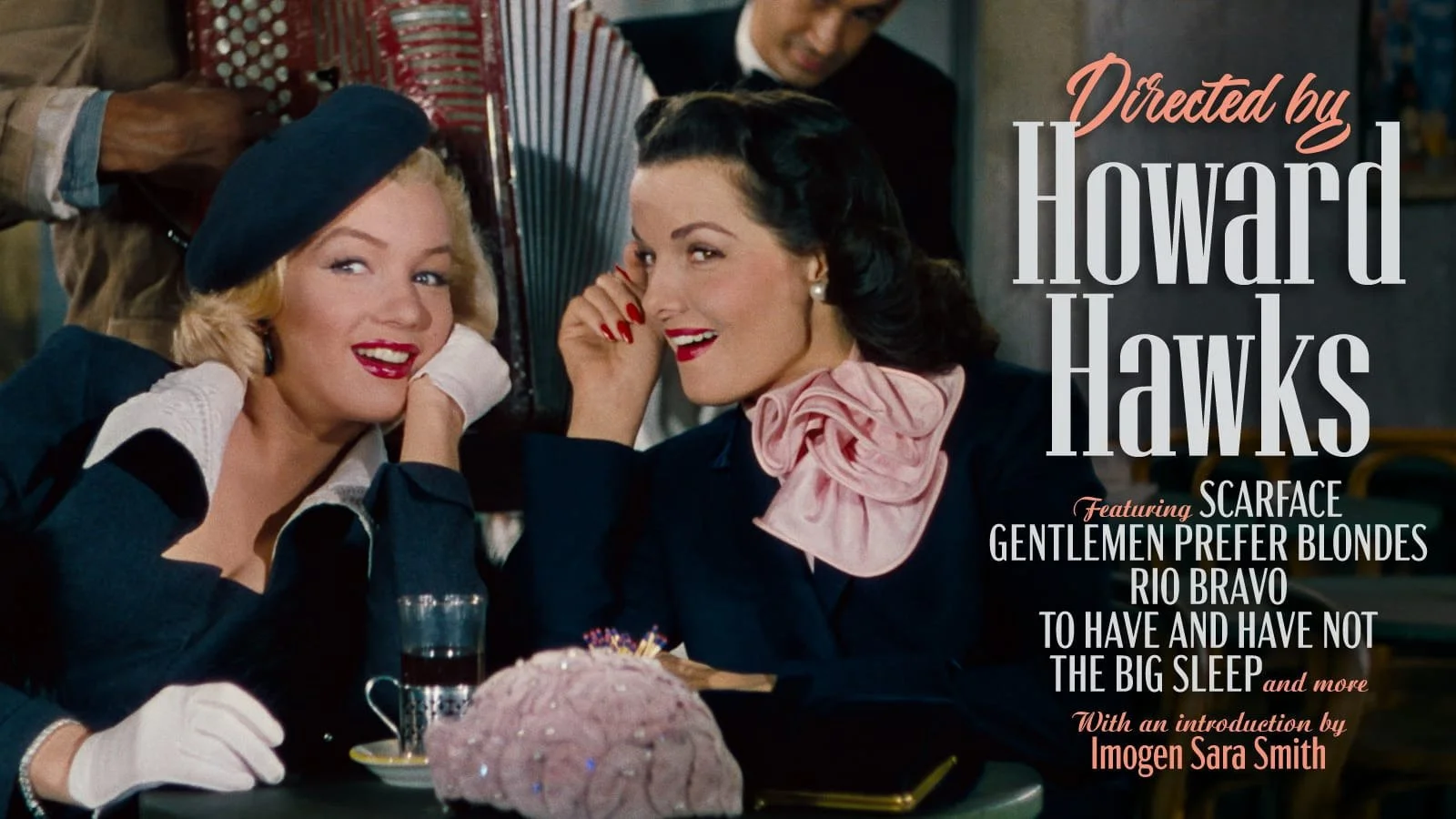




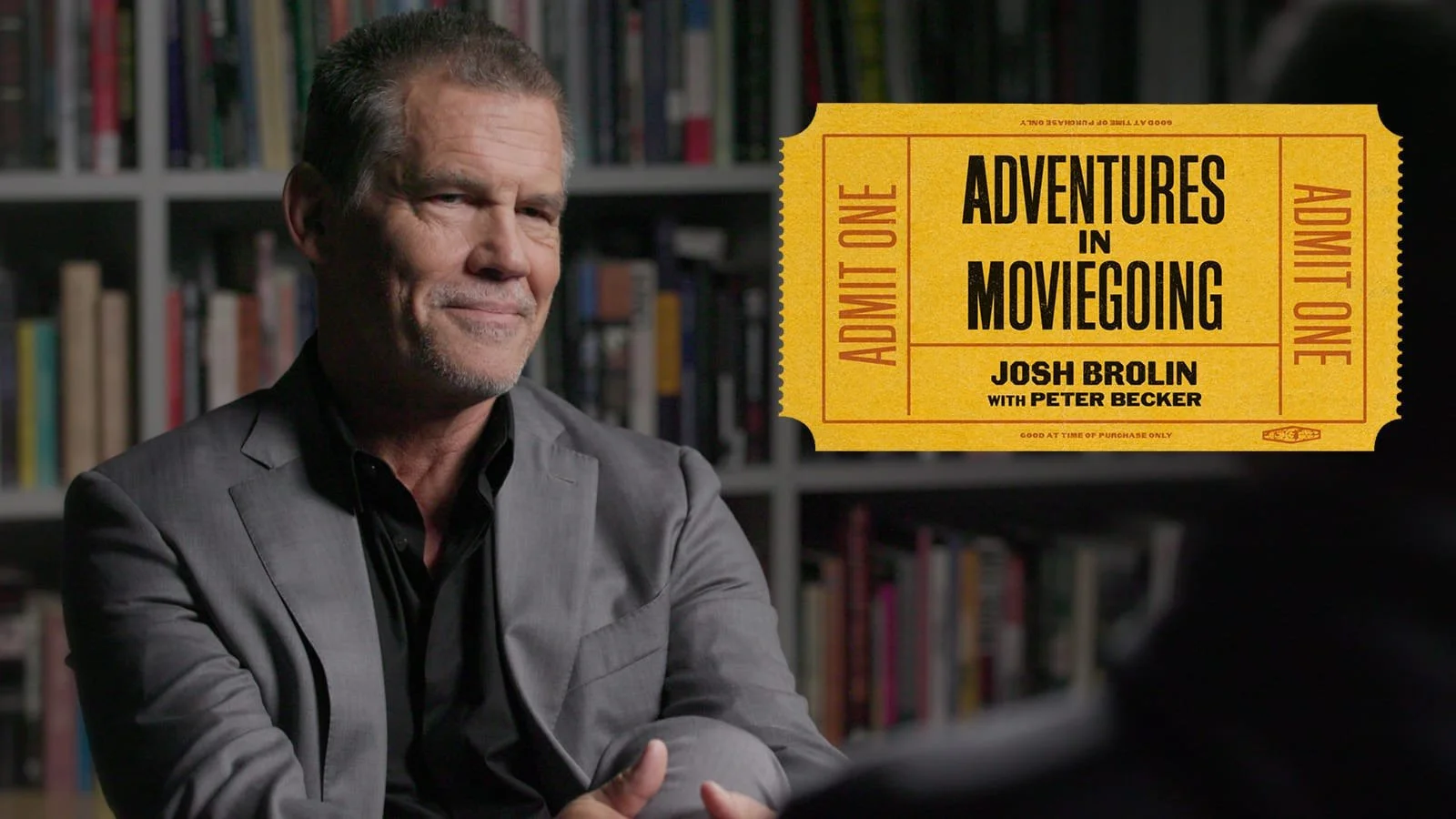
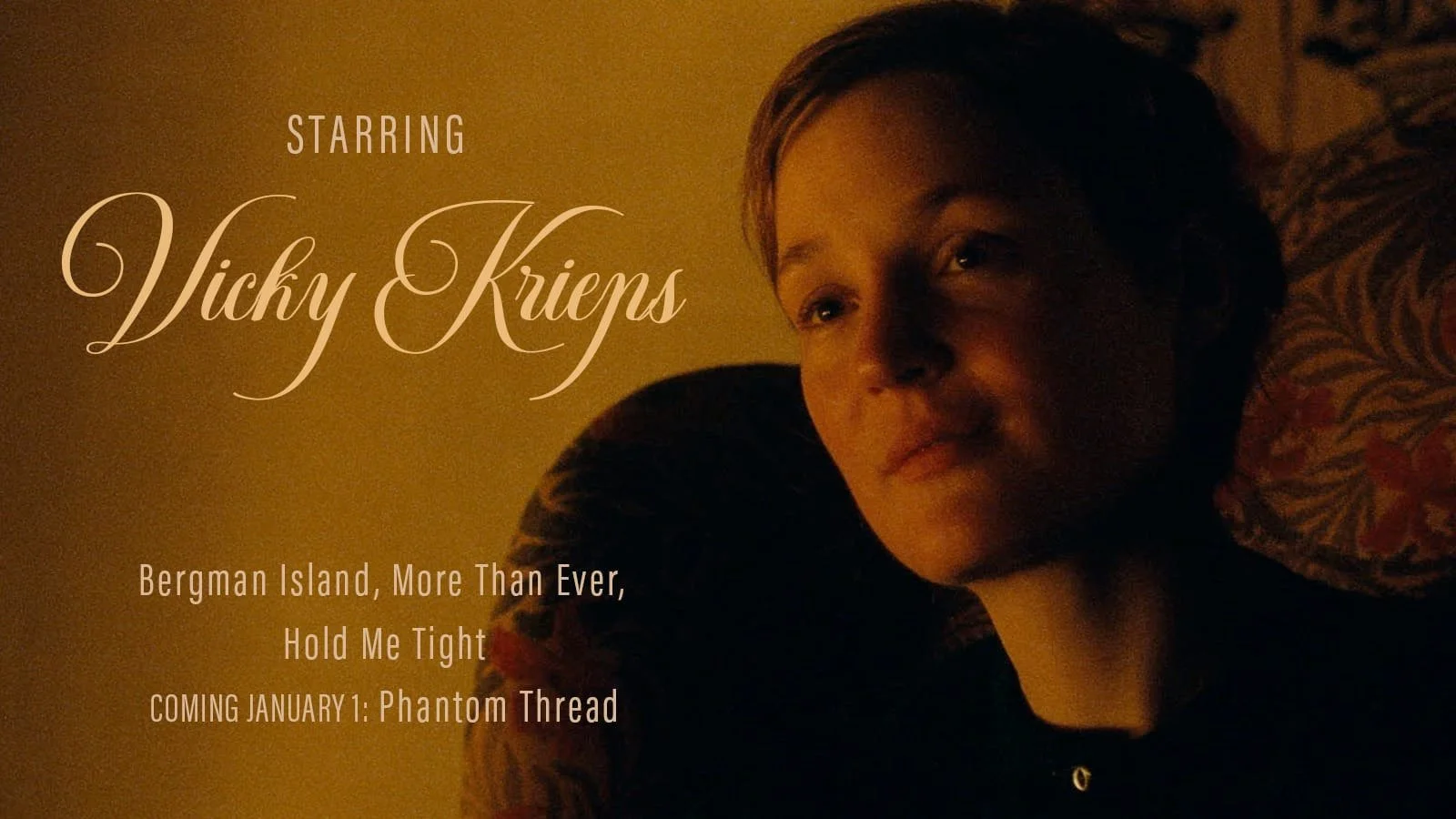

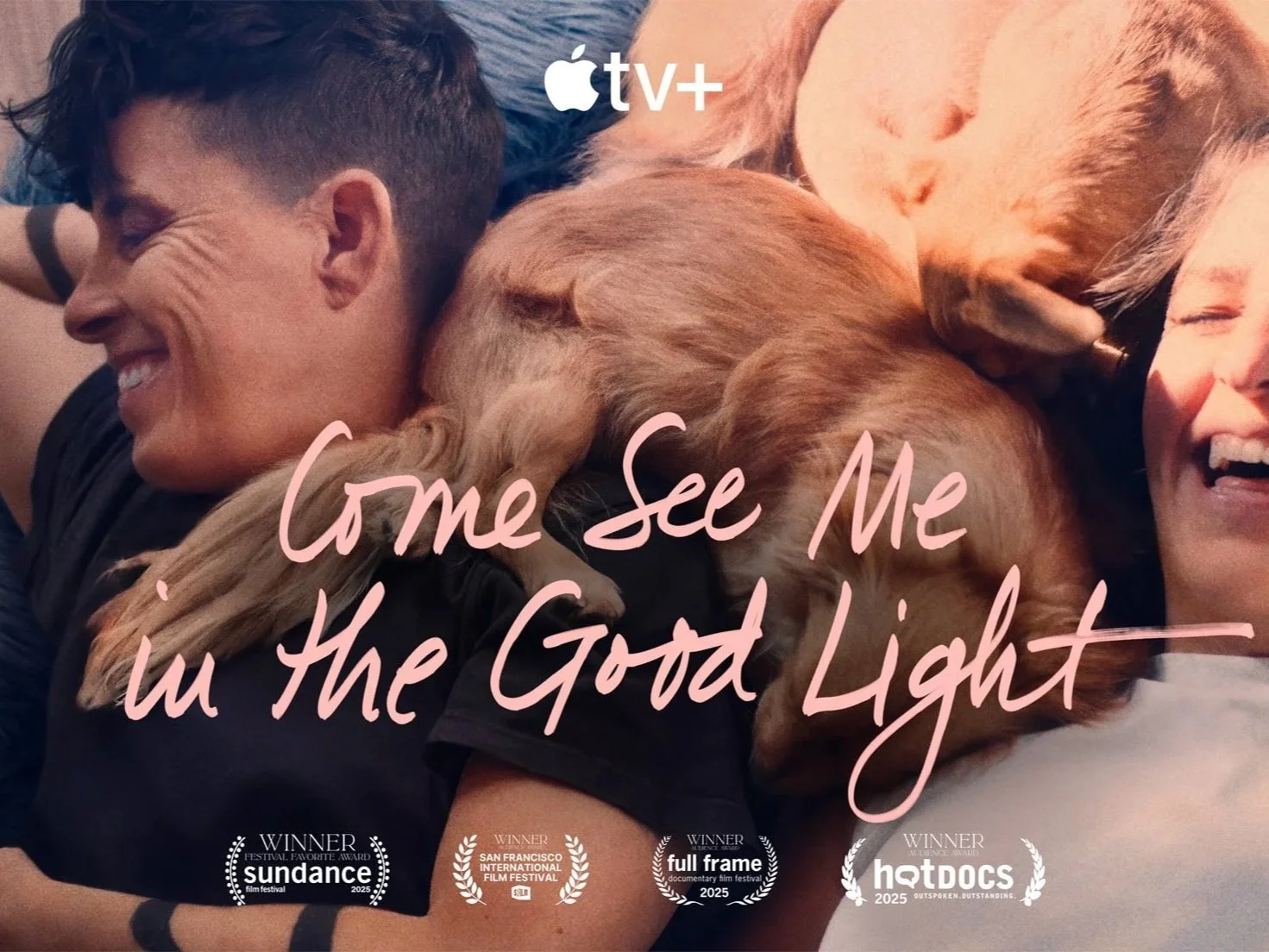
Coming to Disney+ next month…